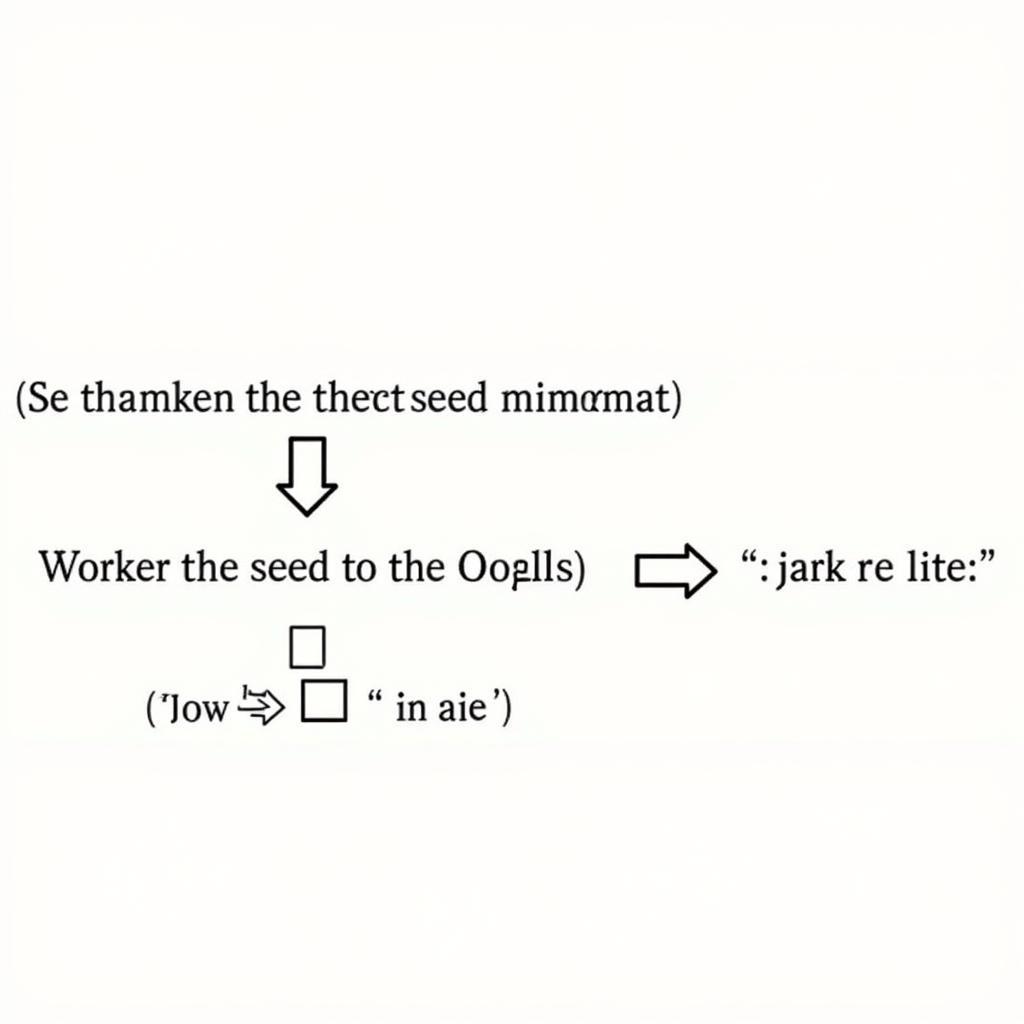Paraphrasing is a crucial skill for success in the IELTS Reading test. It allows you to accurately convey the meaning of the original text in your own words, demonstrating your comprehension and language proficiency. This article will explore effective techniques for using paraphrasing in IELTS Reading answers, helping you boost your band score and confidence.
Understanding the Importance of Paraphrasing in IELTS Reading
Paraphrasing plays a vital role in the IELTS Reading test for several reasons:
- Demonstrates comprehension: By rewording the text, you show that you truly understand its meaning.
- Avoids plagiarism: Using your own words prevents direct copying from the passage.
- Showcases vocabulary: Paraphrasing allows you to display your range of vocabulary and language skills.
- Improves accuracy: Careful paraphrasing helps you focus on the exact information required by the question.
As Dr. Emma Thompson, a renowned IELTS expert, states: “Effective paraphrasing is the hallmark of a high-scoring IELTS candidate. It demonstrates both language proficiency and critical thinking skills.”
 The importance of paraphrasing in IELTS Reading
The importance of paraphrasing in IELTS Reading
Key Strategies for Paraphrasing in IELTS Reading
To master the art of paraphrasing in IELTS Reading, consider these expert strategies:
1. Identify Synonyms and Alternative Expressions
One of the most effective ways to paraphrase is by using synonyms or alternative expressions. This involves replacing words or phrases with others that have similar meanings. For example:
- Original: “The population of the city has increased rapidly.”
- Paraphrase: “The number of inhabitants in the urban area has grown quickly.”
2. Change Word Forms
Altering the form of words (e.g., from noun to verb, or adjective to adverb) can help you paraphrase effectively while maintaining the original meaning. For instance:
- Original: “Scientists made a significant discovery.”
- Paraphrase: “Researchers significantly discovered a new phenomenon.”
3. Restructure Sentences
Rearranging the order of information within a sentence or splitting a long sentence into shorter ones can be an effective paraphrasing technique. For example:
- Original: “Despite the challenges, the team completed the project on time.”
- Paraphrase: “The project was finished by the deadline. This was achieved even though the team faced difficulties.”
 Sentence restructuring as a paraphrasing technique
Sentence restructuring as a paraphrasing technique
4. Use Active and Passive Voice Interchangeably
Switching between active and passive voice can help you paraphrase while maintaining the original meaning. For example:
- Original (Active): “The government implemented new policies.”
- Paraphrase (Passive): “New policies were implemented by the authorities.”
5. Focus on Key Information
When paraphrasing for IELTS Reading answers, it’s crucial to identify and include the most relevant information. As Professor James Liu, an IELTS Reading specialist, advises: “Concentrate on the core message and essential details. Avoid getting bogged down in unnecessary information that doesn’t directly answer the question.”
Link: Common question types in IELTS Reading?
Practical Tips for Applying Paraphrasing Techniques
To effectively use paraphrasing in your IELTS Reading answers, consider these practical tips:
- Read the original text carefully to ensure full comprehension.
- Identify the main ideas and key supporting details.
- Use your own words to express the same meaning.
- Double-check that your paraphrase accurately reflects the original content.
- Ensure your paraphrase fits the context of the question.
- Practice paraphrasing regularly with various types of texts.
Remember, the goal is not to change every single word but to demonstrate your understanding and language skills while maintaining the original meaning.
Link: key strategies to improve IELTS band score
Common Pitfalls to Avoid When Paraphrasing
While paraphrasing is essential for success in IELTS Reading, there are some common mistakes to avoid:
- Changing the meaning: Ensure your paraphrase doesn’t alter the original message.
- Over-reliance on synonyms: Don’t simply replace every word with a synonym; focus on conveying the overall meaning.
- Incomplete paraphrasing: Avoid partially paraphrasing and partially copying the original text.
- Ignoring context: Make sure your paraphrase fits the context of both the original text and the question.
- Using overly complex language: Aim for clarity and accuracy rather than unnecessarily complicated expressions.
Dr. Sarah Chen, an IELTS Reading expert, emphasizes: “The key to successful paraphrasing is maintaining a balance between originality and accuracy. Your goal is to show understanding, not to completely rewrite the text.”
Practicing Paraphrasing for IELTS Reading Success
To improve your paraphrasing skills for the IELTS Reading test, try these practice exercises:
- Read short passages from IELTS-style texts and attempt to rewrite them in your own words.
- Compare your paraphrases with the original text to ensure accuracy and completeness.
- Practice identifying synonyms and alternative expressions for common IELTS vocabulary.
- Work on restructuring complex sentences into simpler forms.
- Time yourself while paraphrasing to improve speed and efficiency.
Link: How to paraphrase effectively in IELTS Speaking?
Conclusion
Mastering the art of paraphrasing is crucial for achieving a high band score in IELTS Reading. By employing the strategies and techniques discussed in this article, you can effectively demonstrate your comprehension and language skills. Remember to practice regularly, focus on accuracy, and avoid common pitfalls. With dedication and consistent effort, you’ll be well-equipped to tackle the paraphrasing challenges in your IELTS Reading test.
Frequently Asked Questions
1. How much should I paraphrase in IELTS Reading answers?
Aim to paraphrase as much as possible while maintaining accuracy and relevance to the question. However, some technical terms or proper nouns may need to be used as they appear in the original text.
2. Can I use direct quotes in IELTS Reading answers?
While it’s generally better to paraphrase, occasional short direct quotes may be acceptable if they’re essential to answering the question accurately. However, overuse of direct quotes can lower your score.
3. How can I improve my paraphrasing speed for the IELTS Reading test?
Regular practice is key. Try timed paraphrasing exercises, expand your vocabulary, and familiarize yourself with common IELTS topics to improve your speed and efficiency.
4. Is it necessary to paraphrase in all types of IELTS Reading questions?
Paraphrasing is particularly important in summary completion, sentence completion, and short-answer questions. However, it’s a valuable skill for all question types, as it demonstrates your understanding and language proficiency.
5. How can I ensure my paraphrasing is accurate for IELTS Reading?
After paraphrasing, always compare your version with the original text to ensure you haven’t changed the meaning. Practice with a variety of texts and get feedback from a teacher or study partner to improve accuracy.


